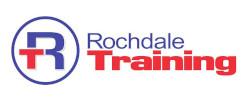Inspection dates: 26 to 29 April 2022
Overall effectiveness - Good
The quality of education - Good
Behaviour and attitudes - Good
Personal development - Good
Leadership and management - Good
Education programmes for young people - Good
Apprenticeships - Good
Overall effectiveness at previous inspection - Good
--------------------------------------------------------------------------------------------
Information about this provider
Rochdale Training Association Limited (Rochdale Training) is an independent learning provider that is based in Rochdale, Greater Manchester. At the time of the inspection, there were 16 trainees on traineeship programmes. There were 403 apprentices studying at levels 2 to 5. Of these, 105 were aged 16 to 18 and 298 were aged 19 and over. Forty-four apprentices were on framework apprenticeships and 359 were on standards-based apprenticeships. Most apprentices study on level 2 and 3 apprenticeships. At level 2, the largest enrolments on apprenticeships are in customer service practitioner and engineering operative standards-based apprenticeships. At level 3, most apprentices study the teaching assistant and business administrator standards-based apprenticeships.
What is it like to be a learner with this provider?
Apprentices and trainees benefit from and value the highly effective support from their tutors. They receive swift and effective pastoral support when they need extra help. For example, trainees and apprentices who experience poor mental health that affects their well-being are supported skilfully by tutors who are trained mental health first aiders or are referred to specialist external agencies. As a result, trainees and apprentices who may have otherwise left their programmes remain and achieve.
Apprentices and trainees complete additional training and qualifications such as paediatric first aid, mental health awareness and working with children with special educational needs and/or disabilities (SEND), which makes them more employable.
Apprentices and trainees become responsible and caring citizens. They enjoy participating in community and charity events and voluntary work. For example, engineering apprentices work on project briefs as they refurbish church bells and make ramps for wheelchairs at care homes. Trainees and business administrator apprentices raise money during charity coffee mornings for cancer charities.
Apprentices and trainees feel safe. They have a good understanding of sexual harassment, safeguarding and the dangers associated with radicalisation and extremism, such as being alert to changes to behaviour in colleagues and peers. They know how to report concerns about their safety and are confident that any concerns are dealt with quickly and appropriately. For example, engineering apprentices understand the importance of using the correct personal protection equipment and working safely with and around machinery. They know to whom they should report safety breaches.
What does the provider do well and what does it need to do better?
Leaders and managers work collaboratively with employers and external organisations such as the local council and the Mayoral Combined Authority to ensure that apprenticeships and traineeships meet the needs of employers, apprentices, trainees and local and regional priorities. For example, they provide teaching assistant apprenticeships for the local council to help resolve skills shortages and fill vacancies across Rochdale. Engineering apprenticeships are designed carefully with employers to reduce skills gaps in advanced engineering manufacturing locally, regionally and nationally.
Leaders have developed an effective traineeship programme. Rochdale Training work with trainees who previously lacked motivation to attend education or training or who suffered poor mental health and/or well-being because of the COVID-19 pandemic. The highly individualised eight-week programme has re-energised trainees, who now enjoy their learning, attend their training and, for many, are quickly placed in work placements.
Tutors provide trainees with good careers advice and guidance. Trainees are well-prepared for their next steps. They complete work placements with carefully selected employers. They talk confidently about their new skills such as improved and effective communication, completing job applications and interview techniques. Approximately half of trainees move on to an apprenticeship at Rochdale Training. Most of the remaining trainees move on to employment, volunteering or further education and training.
Well-qualified, knowledgeable and experienced tutors benefit from good quality staff training such as classroom management techniques and gaining teaching qualifications. Tutors use this in their teaching, for example to review and update their teaching resources to improve accessibility for apprentices and trainees who have additional learning needs. Adult care worker tutors complete the end-point assessment course to help them to better support apprentices in preparing for their final assessments.
Tutors plan the curriculum for apprentices and trainees logically, which helps them to build their knowledge, skills and behaviours over time, and apply these in the workplace. For example, teaching assistant apprentices learn firstly about career planning and continued professional development. This allows the apprentices to set out their aspirations for their career paths and align these with their employers. Apprentices have a clear view of their training and development needs, raising their aspirations and ensuring their employer understands their role in the training. Trainees learn about the skills needed for employment before moving on to subject-specific training, for example in customer service, early years, and health and social care.
Tutors identify and record accurately apprentices’ starting points. They use this information to plan individual learning programmes that meet the needs of employers and apprentices. Tutors plan and coordinate on- and off-the-job training in consultation with apprentices and employers. Apprentices attend off-the-job training to meet their individual and employers’ needs, for example as day release, block release or extended block release either at Rochdale Training or in the workplace. Consequently, most apprentices make good progress.
Trainees produce high-quality work that is at, and often above, the standard expected. Trainees are rightly proud of the work they produce. For example, they produce attractive and informative displays about healthy eating which include visual representations about the quantity of sugar in a range of drinks.
Tutors do not support apprentices well enough to develop their mathematical skills. For example, when apprentices identify areas of difficulty such as long division, tutors do not act on this swiftly. Apprentices are not prepared well enough for their examinations and almost half fail on the first attempt. As a result, a few apprentices make slow progress.
Trainees quickly develop their English and mathematical skills and become increasingly confident in using these newly acquired skills in their work placements and everyday situations. For example, trainees produce high-quality displays in their work placements using the correct spelling, punctuation, grammar and upper- and lower-case text.
Apprentices and trainees with SEND receive effective support from their tutors. Apprentices with, for example, sight impairments or dyslexia use assistive technology and resources to help them with their written work and in the workplace.
Apprentices build their skills progressively and clearly articulate how they apply their knowledge and skills in work. For example, school business professional apprentices explain how they use their negotiation techniques to secure reduced storage costs for surplus furniture.
Most tutors review apprentices’ progress skilfully. They work carefully with apprentices and their managers to review and record the progress that apprentices make. Apprentices’ new and established knowledge, skills and behaviours are identified and recorded accurately. Most tutors set specific targets to further develop apprentices’ knowledge, skills and behaviours. However, on the level 2 engineering and adult care worker apprenticeships, the targets set by tutors are based on the completion of assignments and not the wider skills and behaviours that apprentices need for the workplace. As a result, these apprentices are unclear about the skills and behaviours they need to develop.
Most tutors provide apprentices and trainees with useful feedback on written assessments, practical work, skills development and behaviours. Apprentices and trainees know what they are doing well and what they need to do to improve. They routinely act on feedback to improve the quality of their work. However, apprentices on level 2 engineering and care worker apprenticeships often receive cursory feedback on their written assessments that does not identify what apprentices need to do to improve.
Board members are suitably experienced. They have a thorough understanding of their responsibilities. They ensure that leaders and managers promote equality throughout the organisation. Board members receive annual mandatory safeguarding and ‘Prevent’ duty training. Board members know the strengths and weaknesses of the provision. They receive clear and accurate reports from leaders that they use to provide high levels of challenge and to hold leaders and managers to account. For example, they set clear and measurable targets for leaders and managers to improve further apprentices’ achievement of merit and distinction grades in their final assessments.
Safeguarding
The arrangements for safeguarding are effective.
Leaders and managers have established a culture of safeguarding and protection. The designated safeguarding team has received appropriate training and has the experience to carry out its role effectively. The board receives termly reports on Inspection report: Rochdale Training Association Limited 26–29 April 2022 5 safeguarding concerns. The board approves the safeguarding policy at least twice per year to ensure it reflects the latest safeguarding requirements.
The designated safeguarding team has extensive links with external agencies. For example, it works with Greater Manchester networks, ‘Prevent’ duty coordinators, counter-terrorism officers and the Rochdale safeguarding board. The designated safeguarding lead maintains up-to-date knowledge of any emerging issues related to localised safeguarding such as the dangers linked to radicalisation and extremism, gangs and knife crime.
What does the provider need to do to improve?
Leaders and managers need to make sure that the teaching of mathematics supports apprentices to quickly develop their mathematical skills so that apprentices are well prepared for their mathematics examinations.
Tutors should ensure that the targets set for, and with, apprentices and their employers are personalised and based on the knowledge, skills and behaviours that apprentices need to develop.
Tutors should ensure that the feedback that level 2 engineering and level 2 and level 3 adult care worker apprentices receive identifies what they have done well and what they need to do to improve the quality of their work.
Provider details
Unique reference number - 54155
Address - Fishwick Street Rochdale OL16 5NA
Contact number - 01706 631417
Website - http://www.rochdaletraining.co.uk
Principal/CEO - Jill Nagy
Provider type - Independent learning provider
Date of previous inspection - 26 November 2012
Information about this inspection
The inspection team was assisted by the chief executive officer, as nominee. Inspectors took account of the provider’s most recent self-assessment report and development plans, and the previous inspection report. The inspection was carried out using the further education and skills inspection handbook and took into account all relevant provision at the provider. Inspectors collected a wide range of evidence to inform judgements including visiting learning sessions, scrutinising learners’ work, seeking the views of learners, staff and other stakeholders, and examining the provider’s documentation and records.
Inspection team
Anita Pyrkotsch-Jones, lead inspector - Her Majesty’s Inspector
Suzanne Horner - Her Majesty’s Inspector
Scott Cubitt - Ofsted Inspector
Liz Greenhalgh - Ofsted Inspector
Angus Forsyth - Ofsted Inspector
Alastair Mollon - Her Majesty’s Inspector
If you are not happy with the inspection or the report, you can complain to Ofsted.
The Office for Standards in Education, Children’s Services and Skills (Ofsted) regulates and inspects to achieve excellence in the care of children and young people, and in education and skills for learners of all ages. It regulates and inspects childcare and children’s social care, and inspects the Children and Family Court Advisory and Support Service (Cafcass), schools, colleges, initial teacher training, further education and skills, adult and community learning, and education and training in prisons and other secure establishments. It assesses council children’s services, and inspects services for children looked after, safeguarding and child protection.
If you would like a copy of this document in a different format, such as large print or Braille, please telephone 0300 123 1231, or email enquiries@ofsted.gov.uk.
You may reuse this information (not including logos) free of charge in any format or medium, under the terms of the Open Government Licence. To view this licence, visit www.nationalarchives.gov.uk/doc/open-government-licence/, write to the Information Policy Team, The National Archives, Kew, London TW9 4DU, or email: psi@nationalarchives.gsi.gov.uk.
This publication is available at http://reports.ofsted.gov.uk/.
Interested in our work? You can subscribe to our monthly newsletter for more information and updates: http://eepurl.com/iTrDn.
Piccadilly Gate
Store Street
Manchester
M1 2WD
T: 0300 123 1231
Textphone: 0161 618 8524
E: enquiries@ofsted.gov.uk
W: www.gov.uk/ofsted
© Crown copyright 2022



















